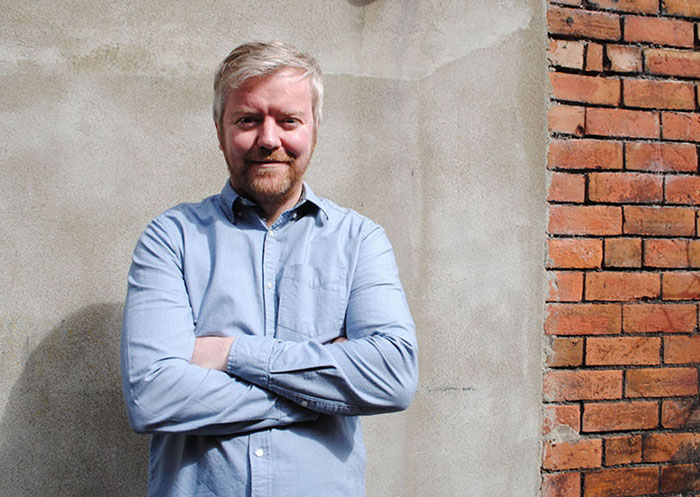A County Down mental health advocate has been involved with a campaign calling on the Minister of Health to ensure that everyone who needs counselling has access to it via their own GP practice.
Rory Doherty from Newcastle has been helping to lead this change as part of the #123GP campaign group led my PPR (Participation and the Practice of Rights) writes Laura Barr.
An active campaigner within the group, Rory has been working alongside Sara Boyce who is the campaign organiser at PPR.
Along with other mental health activists, the pair have been striving to make significant changes to the huge disparities in access to GP services for mental health related issues.
An interactive map detailing all GPs across Northern Ireland created by PPR illustrates that a postcode lottery has been operating for this vital service.

The map developed and released by #123GP campaigners uses official data sources and provides information about which practices are able to offer in-house counselling, and which ones are not.
Rory told Down News: “GP practices are traditionally the first port of call for people suffering from poor mental health.
“And they have reported a significant increase in calls related to mental health as a result of the pandemic.
“For many people, counselling can offer an effective, low cost form of treatment that can help address pain and distress before these become acute.
“It also prevents the medicalisation of emotional distress, a key consideration in a post-conflict society with record rates of prescribing for antidepressants.”
As of September 2020, 69% of all GP practices offered in-house counselling, however this was not uniform across all health trusts.
Whilst 89% of practices in the Northern Trust offered the service, only 51% did in the Southern Trust.
The differences were even more pronounced at local constituency level with South Down only amounting for 45% of GPs offering the service and Newry and Armagh 57%.
Additional barriers to accessing counselling identified by the #123GP campaign include waiting times, lack of a waiting time target, a cap of six sessions and inadequate funding.
Sara Boyce, Mental Health Campaign Organiser at PPR, said: “We know that this pandemic is having a big effect on our mental health and will continue to do so for some considerable time.
“GPs will have a key role in connecting people to the support they need, so it’s vital that they are properly equipped to do this.
“Counselling is one effective treatment but at this present time accessing counselling through your GP practice is a post-code lottery.
“In some areas every GP practice offers this service but in others, less than half of GP practices can offer it.
“This cannot be fair or right”, she added.
“Now is the time, with the development of a ten-year Mental Health strategy, for the Minister for Health to ensure that all GP practices are resourced to provide timely access to counselling.
“Let’s ensure that everybody can get the help they need, regardless of where they live.”
The #123GP campaign is calling on the Minister for Health, Mr. Robin Swann, to ensure that all GP practices are equipped to provide timely access to counselling to all those who need.
To this end they are calling for the following commitments to be included in the ten-year Mental Health Strategy:
- Ensure that all GP practices are adequately resourced to provide timely access to counselling for everyone who needs it.
- Ensure that nobody waits longer than 28 days for a routine appointment and no longer than 2 days for an urgent one.
- Provide people with options for accessing counselling – in their local GP practice or through the Talking Therapy Hubs run by the Trusts.

























